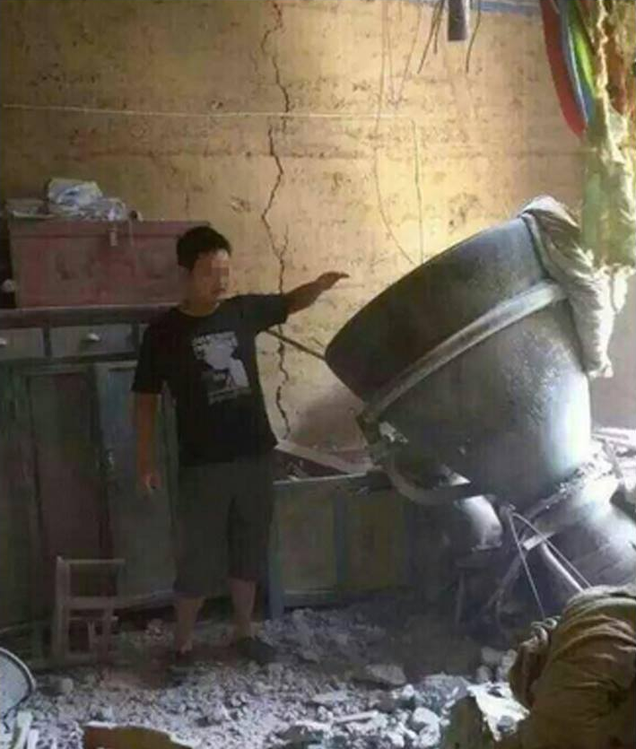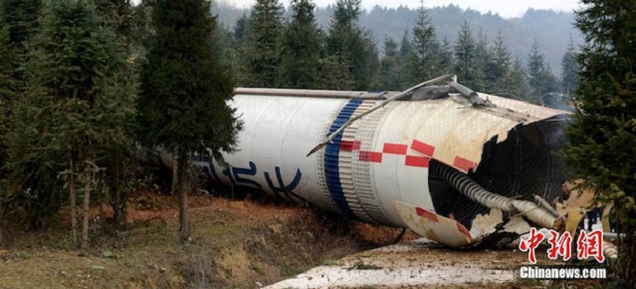http://www.politico.com/agenda/story/20 ... ire-000211
China: The new Spanish Empire?
The Chinese crisis has important echoes of the Soviet Union and 16th-century Europe. And history tells us the outlook isn't pretty.
The Chinese turmoil roiling markets right now presents a fresh and profound challenge to the world economy: For the first time, a giant, non-European superpower threatens world financial stability and the powers that be seem at a loss. If the IMF and World Bank have stumbled with Greece, how are they going to get a hold on the stock market travails of Communist China? What tools do we even have to affect how it plays out?
But if the particulars are novel, in the bigger sense this is a movie we’ve seen before. Though China has been the global economic star of the last low-growth decade, it remains a totalitarian dictatorship, with its economy shrouded in state secrecy. What we’re encountering in this crisis is the spectacle of a closed society colliding with the forces of complex, free-market capitalism. If we look beyond China, we can find a long history of these collisions, dating back hundreds of years, as both closed societies and capitalism evolved and became more complex. And the history has a clear but unsettling lesson to offer: When such a collision happens, it’s a moment to genuinely worry.
Since the dawn of capitalism, closed societies with repressive governments have—much like China—been capable of remarkable growth and innovation. Sixteenth-century Spain was a great imperial power, with a massive navy and extensive industry such as shipbuilding and mining. One could say the same thing about Louis XIV’s France during the 17th century, which also had vast wealth, burgeoning industry and a sprawling empire.
But both countries were also secretive, absolute monarchies, and they found themselves thrust into competition with the freer countries Holland and Great Britain. Holland, in particular, with a government that didn’t try to control information, became the information center of Europe—the place traders went to find out vital information which they then used as the basis of their projects and investments. The large empires, on the other hand, had economies so centrally planned that the monarch himself would often make detailed economic decisions. As these secretive monarchies tried to prop up their economies, they ended up in unsustainable positions that invariably led to bankruptcy, collapse and conflict.
In Spain, the result was a slow collapse, which has left it and its former empire suffering from perpetual economic crisis and political instability. In France, an open society would eventually be born through monarchial bankruptcy that pulled down banks around Europe, and ended in violent revolution and the vastly destructive Napoleonic wars.
More recently, Germany long struggled with the mix of modern industry, capitalism and authoritarianism. Throughout the 19th century, and into the 20th, Germany experienced massive economic growth under the hand of Bismarck’s central political authority; the result was a period of great strength, followed by crisis, war, political upheaval and the geopolitical and moral catastrophe of WWII.
And though we tend to forget this now, the Soviet Union experienced massive economic expansion for half a century. America feared it not only for its m military, but for the industrial might, expanding GDP and technological achievements that added heft to its ideological challenge around the world. Only after the collapse of the USSR in 1991 did we fully understand what was really going on behind the curtain. In financial terms, Soviet secrecy was very effectively shrouding the massive liabilities of the state. It had admirable steady growth, industrial production rates, and GDP rose—so much so that even until the early 1980s, the CIA saw the Soviet economy as a credible, competitive force. But in order to sustain economic growth, we can’t just look at output; we also need to see the long-term cost of the output, and the Soviet system allowed its leaders to shroud the unsustainable costs in inefficiency, lives, and environmental destruction that eventually brought down the empire.
China is a new case, for it has mixed capitalism and totalitarianism in a unique way. Unlike the USSR, there are privately owned companies and public investment. And yet behind banks, companies and the stock market still lies the heavy hand of the state. The Chinese government forces investment in the stock market and bolsters banks, companies and state entities with secretive cash infusions; it and hides toxic assets in its enormous and completely secretive sovereign wealth funds. The government may not be able to control the stock market, but it does successfully keep a veil over state finances. This is what closed, authoritarian governments have done since the 16th century.
China is now playing in world financial markets, but those markets are dynamic and resilient in part because they are relatively open—they can fail, but it’s reasonably clear why, and, in the best cases, the paths to reform are debated in public forums. In China, there are the mechanics of capitalism without the essential spirit of the system. As in imperial Spain, or Cold War Russia, there is neither transparency nor trust. There is no question that China has massive growth potential until its population curve starts to turn, but what we are seeing in this current financial crisis is likely to be only the beginning of the political and societal crisis brought about by a dictatorship’s efforts to simulate the performance of a capitalist economy—but one that only grows. The stock market is not real; government financial statistics are fake and obscured.
There is no historical example of a closed imperial economy facing large capital-driven, open states and sustainably competing over the long term. That is not to say that China isn’t an economic powerhouse and a remarkable site of energy and potential. It is certainly both. But we also know Chinese debt—as secret as the state likes to keep it—is enormous, and that its financial system is like any other bubble. It is predicated on inflated earnings reports and expectations. The great “Beijing Consensus,” China’s absolute commitment to showing 8% growth every year, is unsustainable, at least through legitimate means. And without it, China is beginning to look like an enormous totalitarian ponzi scheme—a phenomenon common enough in world history, but extremely dangerous to be near in the long run.
It’s tempting to look for quick policy solutions, or—for some political candidates—to wave around threats as a way to gain leverage. But almost by definition, a society like China is immune to our efforts: if we don’t actually know what’s going on, it’s difficult to exert even our limited influence in an intelligent way. In the short term, the best goal to push for is more transparency, in the hope that sunlight helps mitigate whatever shock is still coming. And until then, a healthy skepticism might be the best protection we can offer ourselves.
Jacob Soll, a professor of history and accounting at the University of Southern California, is the author of The Reckoning: Financial Accountability and the Rise and Fall of Nations.



